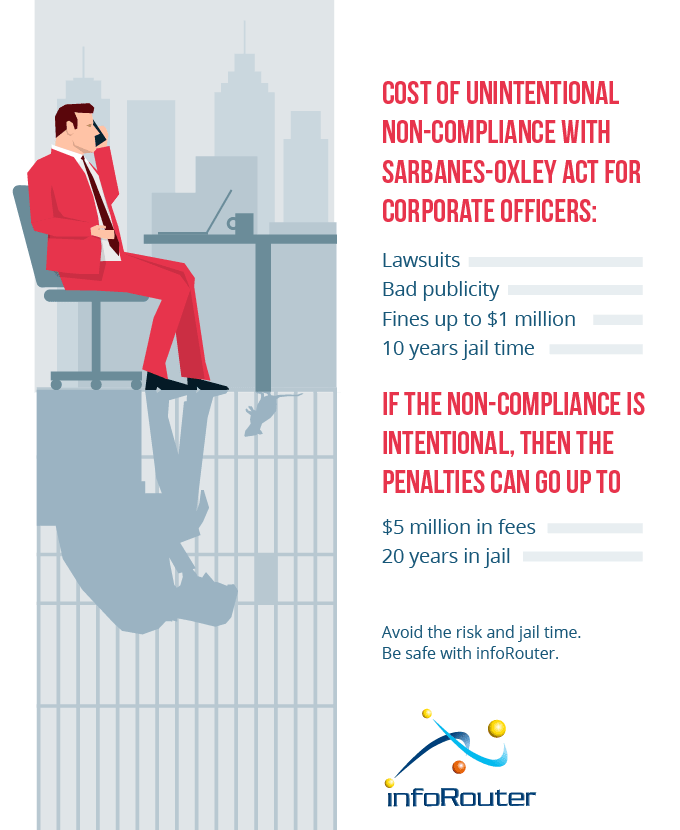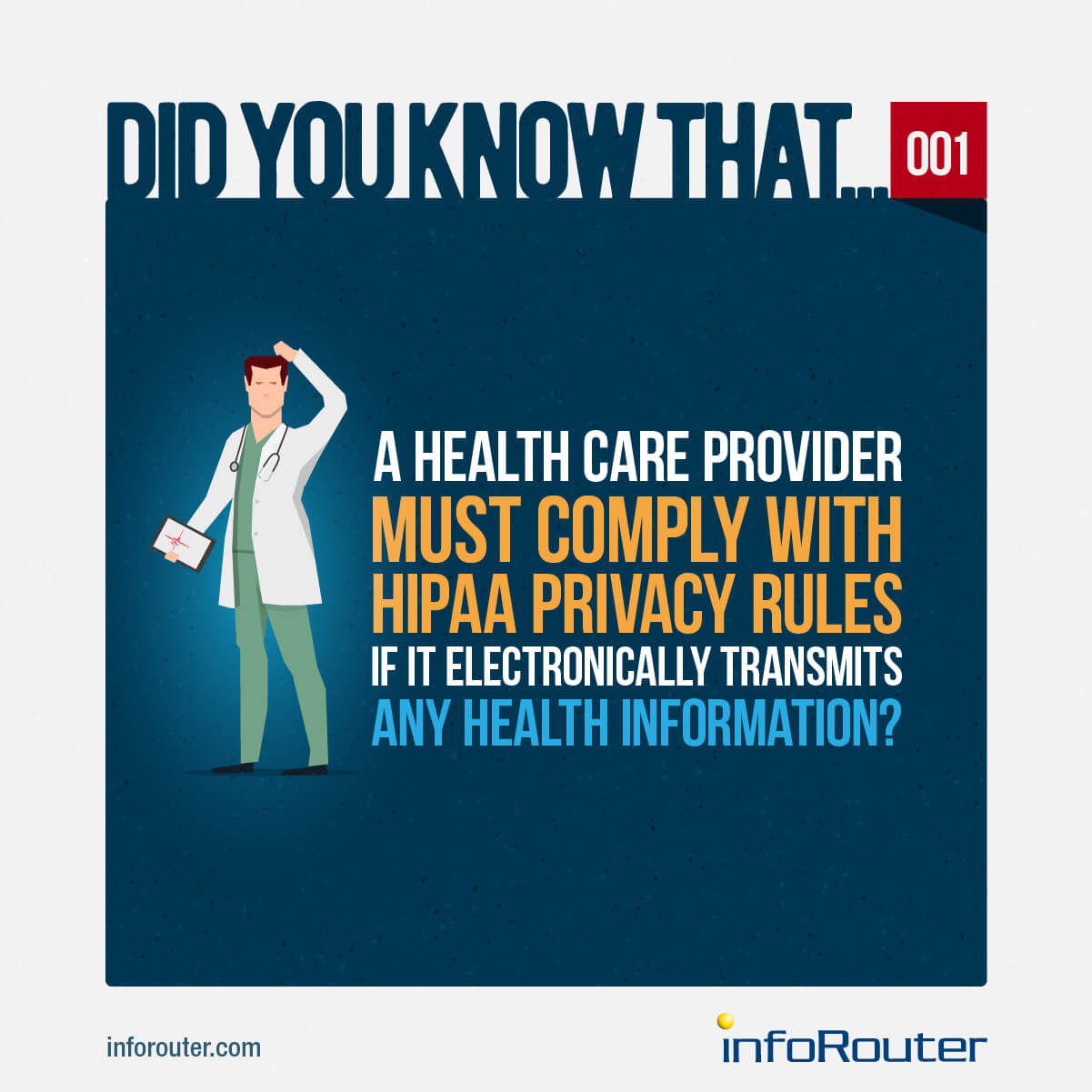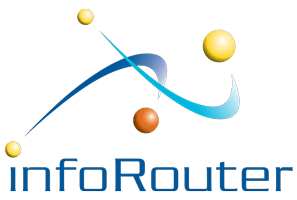Ensuring Data Security & Compliance for Peace of Mind
Stay Ahead of Regulations with infoRouter’s Advanced Compliance FeaturesIn an increasingly interconnected world, businesses face the daunting task of navigating not just domestic regulations but also the complex maze of international laws—a challenge known as cross-border compliance. A single misstep can lead to severe penalties, legal actions, and irreversible damage to your company’s reputation on a global scale. Are you equipped to handle the intricacies of multiple regulatory environments?
infoRouter’s Regulatory Compliance Software Solutions empower organizations to effortlessly manage compliance across borders and industries. Our platform ensures adherence to all applicable laws and regulations, streamlines document management, and mitigates risks associated with non-compliance. Stay ahead of the curve and protect your business from costly violations with a solution designed for the complexities of today’s global marketplace.
What is Regulatory Compliance?
Regulatory compliance refers to an organization's adherence to laws, regulations, guidelines, and specifications relevant to its business. Failure to comply with these regulations can result in legal issues, hefty fines, and damage to a company’s reputation. Many industries, such as financial services, industrial manufacturing, and healthcare organizations are subject to stringent regulations imposed by government agencies and industry standards.
Organizations in every regulated sector must meet regulatory demands by federal governments and industry-specific regulations. Implementing a regulatory compliance policy ensures adherence to all applicable regulations and compliance with laws.

Effective regulatory compliance management ensures that companies meet their compliance obligations while mitigating risks. Non-compliance can lead to violations that affect business continuity and result in significant legal and financial repercussions. To avoid this, businesses must implement policies that manage regulatory requirements, audit rules, and document control.
By using an integrated system like infoRouter, companies can significantly reduce their financial liability and litigation risk while addressing mandates imposed by federal regulations, industry-specific standards, and corporate governance policies.
What are the Consequences of Non-Compliance?
Non-compliance with regulations like the Sarbanes-Oxley Act can lead to serious repercussions for corporate officers:
- Unintentional Non-Compliance: Can result in lawsuits, reputational damage, fines up to $1 million, and up to 10 years jail time.
- Intentional Non-Compliance: Penalties can increase to $5 million in fines and up to 20 years jail time.
European Union and EU Regulations: Even if your business operates outside the European Union and considers itself beyond their jurisdiction, if you handle the personal data of EU citizens, beware of the long reach EU regulations like the GDPR may have on your organization. More information on GDPR can be found in General Data Protection Regulation (GDPR)
Under the GDPR, organizations that fail to comply with its regulations can be fined up to €20 million or 4% of their annual global turnover worldwide, whichever is higher.
Call us today at 1 800 237 5948 or Email us at [email protected]
Why is Document Management Important for Regulatory Compliance?
Organizations today face a wide range of regulatory compliance requirements imposed by various federal agencies and regulatory bodies. These Regulatory compliance rules differ from one regulatory body to the other but often overlap and have direct implications for document control and document management, as they specify how organizations must handle, store, retain, and secure their documents and records to ensure corporate compliance. Below is a list of key regulatory bodies and regulations, highlighting how each relates to document management.
-
Sarbanes-Oxley Act (SOX)
Sarbanes Oxley is particularly focused on practices related to managing financial and accounting documents, particularly compliance with Section 404.
SOX mandates strict financial record-keeping and reporting requirements for public companies. Document control is critical under SOX to ensure that financial documents are accurate, securely stored, and accessible for audits. Organizations must implement document management systems that provide version control, access restrictions, and audit trails.
-
Health Insurance Portability and Accountability Act (HIPAA)
HIPAA requires healthcare organizations to safeguard protected health information (PHI). This involves implementing secure document management practices to control access to electronic and paper records, maintain audit trails, and ensure the confidentiality and integrity of patient information.
-
General Data Protection Regulation (GDPR)
GDPR mandates that organizations protect the personal data and privacy of EU citizens. This includes strict requirements for data handling, storage, access control, retention, and disposal. Effective document management systems are essential to comply with these privacy regulations by ensuring that personal data is securely stored, easily retrievable, and properly disposed of when no longer needed.
-
Financial Industry Regulatory Authority (FINRA)
FINRA requires financial firms to retain and supervise electronic communications and documents related to their business. Effective document management systems help firms comply by securely storing records, managing retention schedules, and providing quick retrieval for audits or regulatory inquiries.
-
Gramm-Leach-Bliley Act (GLBA)
GLBA mandates that financial institutions protect consumers' personal financial information. Document control systems are necessary to safeguard sensitive documents, manage access by authorized users, and ensure proper data retention and disposal practices.
-
Payment Card Industry Data Security Standard (PCI DSS)
PCI DSS requires organizations that handle credit card information to protect cardholder data. This includes securing any documents—digital or paper—that contain sensitive payment information. Document management systems help enforce access controls and secure storage. An ideal system would be instrumental in preventing security breaches.
-
Food and Drug Administration (FDA) Regulations
The FDA requires companies in regulated industries to maintain detailed records and documentation for compliance purposes. Document control is essential to manage versions of documents, ensure data integrity, and facilitate audits. Electronic Document Management Systems (EDMS) help organizations comply with FDA regulations like 21 CFR Part 11, which governs electronic records and signatures.
-
Health Information Technology for Economic and Clinical Health Act (HITECH)
HITECH enhances HIPAA by promoting the adoption of electronic health records (EHRs) and increasing penalties for non-compliance. It emphasizes the need for secure electronic document management to protect health information, manage access, and ensure data integrity.
-
International Organization for Standardization (ISO) Standards
- ISO 9001 (Quality Management Systems)
- ISO 27001 (Information Security Management Systems)
ISO standards require organizations to implement document control procedures as part of their quality and information security management systems. This includes creating, reviewing, approving, distributing, and archiving documents systematically to ensure consistency and compliance.
- Occupational Safety and Health Administration
(OSHA)
OSHA requires employers to maintain records related to workplace safety, incidents, and training. Proper document management ensures these records are accurately maintained, securely stored, and readily accessible during inspections or investigations.
-
Financial Conduct Authority (FCA) (UK)
The FCA mandates that financial firms maintain comprehensive records of transactions, communications, and client interactions. Effective document management systems help firms comply by organizing documents, controlling access, and ensuring records are retained for the required periods.
-
Canadian Personal Information Protection and Electronic Documents Act (PIPEDA)
PIPEDA governs how organizations in Canada handle personal information. Document management systems assist in securing personal data, managing consent, controlling access by authorized users, and complying with data retention and disposal requirements.
-
Australian Prudential Regulation Authority (APRA)
APRA requires financial institutions to have robust risk management systems, which include proper documentation and record-keeping practices. Document control is essential to manage policies, procedures, and records that demonstrate compliance with regulatory requirements.
-
Basel III
Basel III requires banks to maintain documentation that supports their risk assessments and capital adequacy calculations. Effective document management ensures that these critical documents are accurate, up-to-date, and accessible for regulatory reviews.
-
Federal Trade Commission (FTC)
The FTC enforces regulations related to consumer protection and data privacy. Organizations must manage documents containing personal information responsibly to avoid deceptive practices and ensure data security, which involves robust document control measures.
- Federal Information Security Management Act: Ensuring data security and compliance with federal standards.
- DoD 5015.2 : Compliant records management for federal record-keeping laws and regulations.
- Corporate Governance : Ensuring compliance with comprehensive data privacy laws.
- Internal Controls : Documenting and testing internal controls to ensure compliance.
These regulatory bodies and regulations are directly related to document control and document management because they:
- Impose Specific Document Retention Periods: Organizations must retain certain documents for defined periods, necessitating systems to manage retention schedules.
- Require Secure Storage and Access Controls: Sensitive information must be protected from unauthorized access, requiring secure document repositories and access permissions.
- Mandate Accurate and Up-to-Date Records: Regulations often require that documents are current and reflect the latest information, highlighting the importance of version control.
- Necessitate Audit Trails and Reporting: Organizations must track document access, changes, and distribution to demonstrate compliance during audits.
- Emphasize Data Privacy and Protection: Protecting personal and sensitive data is a common regulatory theme, requiring robust document management practices.
Implementing an effective document management system helps organizations comply with these regulations by providing the tools needed for proper document control, including storage, retrieval, access management, version control, and secure disposal.
Non-compliance can result in severe consequences, including potential penalties amounting to millions of dollars.
Developing a Compliance Policy using infoRouter Document Management System
To meet regulatory compliance standards imposed by regulatory agencies businesses must ensure the consistency of their records management and handling processes. Almost all regulations require a documented set of procedures consistently applied across all records. Organizations must also implement systems that provide complete audit trails of access to sensitive documents, ensuring continuous monitoring of compliance requirements.
infoRouter supports your organization’s “regulatory compliance policy” by automating document management processes, applying retention schedules, and providing secure access controls and audit trails through a wide range of tools, ensuring compliance with industry standards and legal requirements.
- ISO Certification: Requires documentation of all company activities, with regular reviews and audits.
- The Health Insurance Portability and Accountability Act (HIPAA): Requires strict documentation and access controls for patient records.
- DoD 5015.2: Calls for rules on creating, maintaining, archiving, and destroying documents, with detailed tracking of all actions.
With infoRouter, companies can create "Retention and Disposition" policies that automatically apply to documents and folders. This ensures compliance with retention rules and prevents unauthorized deletion of important records.

E-discovery and audits can be challenging, but with the right technology solutions and resources, your company can ensure regulatory compliance across the board. Regulatory requirements span various agencies and federal authorities, requiring companies and their employees to maintain a comprehensive compliance strategy to manage your compliance risks and avoid financial penalties.
Enterprise risk management policies are crucial, as non-compliance can lead to hefty fines, legal issues, and disruptions to business continuity. Using infoRouter, you can mitigate your company's financial liability and litigation risk, helping you avoid violations and legal actions. Continuous monitoring is essential to ensure compliance obligations are met, laws are adhered to, and issues are minimized.
Document Version Control
Managing different versions of critical documents is vital for compliance, particularly in regulated industries. ınfoRouter’s document version control features allow businesses to track and manage the entire history of a document, ensuring that every change is logged and easily retrievable. This helps prevent unauthorized changes and ensures that companies maintain consistent, secure records.
- Version History: Retain a complete history of all document versions, simplifying verification of which version was in use at a specific time.
- Document Integrity: Ensure the authenticity and accuracy of important documents, which is crucial for audits and legal actions.
- Access Control: Restrict document editing to authorized personnel, reducing the risk of compliance violations.
By maintaining a comprehensive audit trail of all document changes, infoRouter helps businesses
demonstrate compliance with regulatory standards and audit rules during both internal and external
audits.
"Implementing infoRouter has helped us achieve our business goals beyond what we thought was possible. Version Control and Folder rules have improved our daily workflow. We are now much more efficient in how we handle our documents."
Audit Trails
A comprehensive audit trail is essential for regulatory compliance. infoRouter automatically tracks every action taken on documents—such as access, modifications, and deletions—creating a transparent and defensible record. This functionality is critical for proving compliance with regulations like the Sarbanes-Oxley Act, HIPAA, and DoD 5015.2, while ensuring adherence to audit rules and surviving regulatory compliance audits.
- Detailed Tracking: Capture and record every interaction with documents, including access history and modifications.
- User Accountability: Identify specific users responsible for any actions, ensuring accountability.
- Compliance Reporting: Generate reports based on audit trail data for use during internal audits or external regulatory reviews.
The audit trail enables businesses to maintain transparency and demonstrate their adherence to
compliance obligations, helping them avoid financial penalties and legal issues.
"The audit trails provided by infoRouter have saved us countless hours during compliance checks. We can now pull up any document history within seconds, ensuring our processes are always up-to-date and compliant."
Legal Discovery
infoRouter is a powerful tool for facilitating legal discovery, a crucial process in litigation or government investigations. Ensuring that records are preserved, accessible, and retrievable is essential to prevent disruptions or legal challenges. InfoRouter’s advanced search and retrieval features make it easy to locate relevant documents and ensure compliance with e-discovery requirements.
- Document Preservation: Securely store documents to ensure they are not altered or deleted during a legal hold.
- Advanced Search Tools: Quickly search through large volumes of documents to find relevant files, expediting the discovery process.
- Compliance with Legal Holds: Ensure that all necessary documents are retained and accessible throughout legal proceedings.
By streamlining the legal discovery process, infoRouter reduces the time and cost associated with compliance-related legal actions while minimizing the risk of non-compliance penalties.
Even if you are not regulated, to improve your internal processes and achieve your business goals,
you need a good document management strategy. Read our resource on
Why is document
Management Important.
Important Links:
For more information on Sarbanes Oxley Act of 2002, visit the Sarbanes Oxley Act of 2000 - Financial and Accounting Disclosure Information
For more information on Health Insurance Portability and Accountability Act, visit their site at HIPAA
For more information on ISO Document Control visit the organization website.

